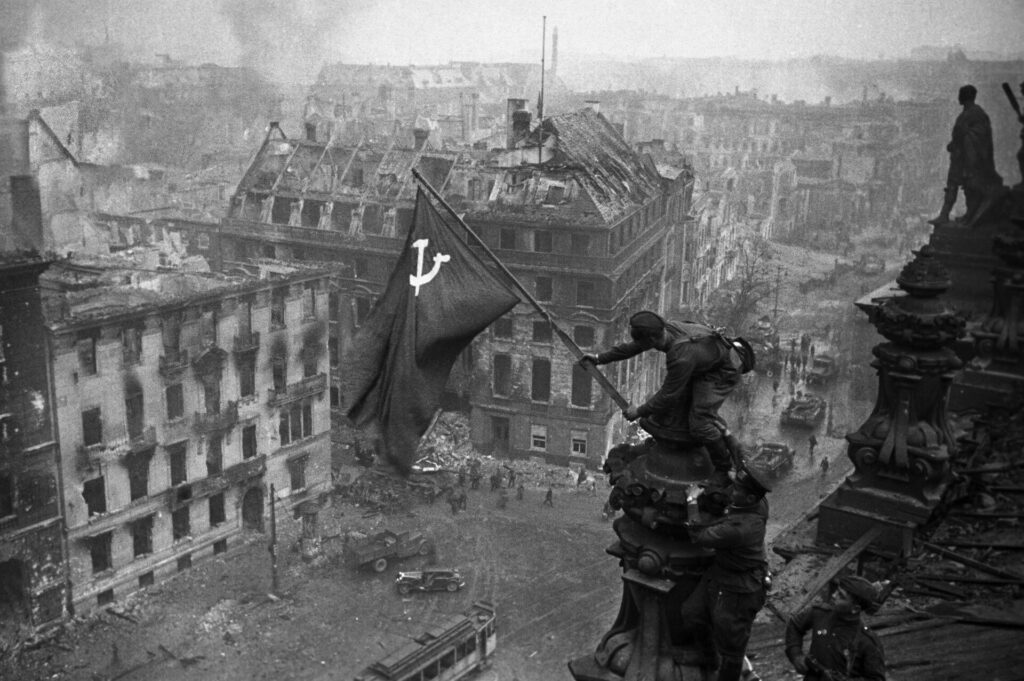By H.E. Mr. Vladimir Tarabrin, Ambassador of the Russian Federation to the Kingdom of the Netherlands
The Great Patriotic War – as the part of the World War II, spanning from 1941 to 1945, is called in Russia – was not merely a military conflict, but a profound struggle for survival, identity, and the future of the whole world. On June 22, 1941, when Nazi Germany invaded the Soviet Union, it opened one of the bloodiest chapters in human history. However, the powerful and heavily-armed war machine of the Wehrmacht came face to face with the enormous force of the Soviet people, united by the will and determination to protect their motherland.
From the very beginning the leadership of Hitler’s Germany made no illusions about the true goals of their “Drang nach Osten” – the enslavement and complete extermination of the people who lived on the territory of the Soviet Union. The resources — both human and material — that were mobilized in the USSR to stop Nazism were immense. About 27 million Soviet people lost their lives on the frontlines, in German captivity, perished of starvation and bombings, in ghettos and Nazi concentration camps. Some researchers even estimate that the total losses of the Soviet Union exceeded 30 million people. To put it in perspective, the USSR lost 1 in 7 of its citizens, while Britain, for example, lost 1 in 127 and the United States lost 1 in 320. That is the reason why we cannot be idle observers to the marches commemorating Nazi collaborators in Baltic states (whom they proudly call patriots) or the standing ovation in honour of the SS 14th Waffen Division veteran in the Canadian parliament.

Our country certainly remembers and honors the Allies’ contribution to the defeat of Nazi Germany. Without the deliveries of aid under the Lend-Lease program, the battle of El Alamein, the Allied air raids aimed at destroying the industrial centers of the Third Reich, and the landing in Normandy, the victory would be much more difficult.
However, in recent years we have witnessed attempts by a number of countries to minimize the role of the Soviet Union in the WWII. We refuse to tolerate this. It was the heroes of the Red Army that took their last battle in the encirclements of 1941, fought for every house in Sevastopol and Stalingrad, launched tank attacks at Prokhorovka and Kharkov, liberated not only Soviet cities, but also Bucharest, Belgrade, Warsaw, Budapest, Vienna and Prague and finally stormed Berlin.
Beyond those famous battles, the Siege of Leningrad stands out as a harrowing testament to the suffering and endurance of the Soviet people. For nearly 900 days the city was encircled by enemy forces, subjected to relentless shelling and severe food shortages. The resilience of Leningrad’s citizens reflects the indomitable spirit of the Soviet people. More than a million citizens died as a result of what was essentially genocide perpetrated by the Wehrmacht on our soil. We can’t let that fade into oblivion.
79 years have passed since the end of that terrible war. However, today many European politicians seem to have forgotten what that victory cost us. We see memorials to fallen Soviet soldiers being demolished in many European countries, streets and squares being named in honor of Nazi collaborators and criminals.
Against the background of this dismal trend, measures to preserve the memory of the heroic deeds of Soviet soldiers seem all the more valuable. We appreciate the efforts of those Dutch people who contribute to the work of the Soviet War Cemetery in Leusden (next to the Amersfoort Rusthof cemetery). The remains of 865 war victims from the Soviet Union are buried there, including 101 prisoners from Amersfoort concentration camp. Currently, the work is underway to construct a museum of the Soviet War Cemetery. And next year we hope to celebrate the 80th anniversary of the victory there.
I would like to say that today the legacy of the Great Patriotic War continues to shape the Russian national identity, reminding our current and future generations of the resilience and sacrifice that ensured the survival of our country as well as the whole Europe. Unfortunately, time passes and we see less and less living veterans of the War. This makes the preservation of the memory of that tragic period of utmost importance. Ignoring the lessons of history inevitably leads to a heavy reckoning. That is why the Russian Federation will firmly uphold the truth based on documented historical facts. And we will vehemently defend an honest and unbiased account of the events of that terrible war.